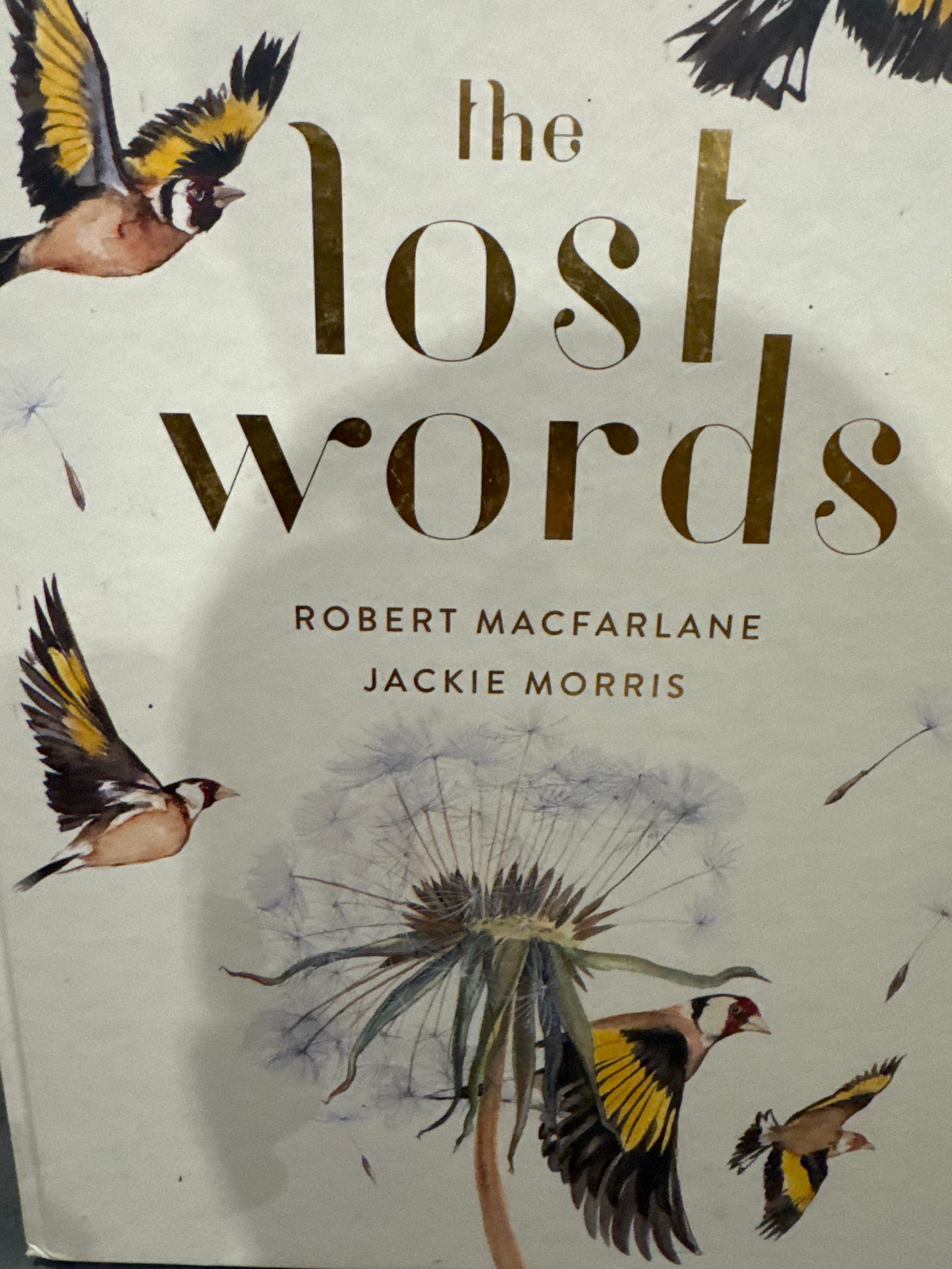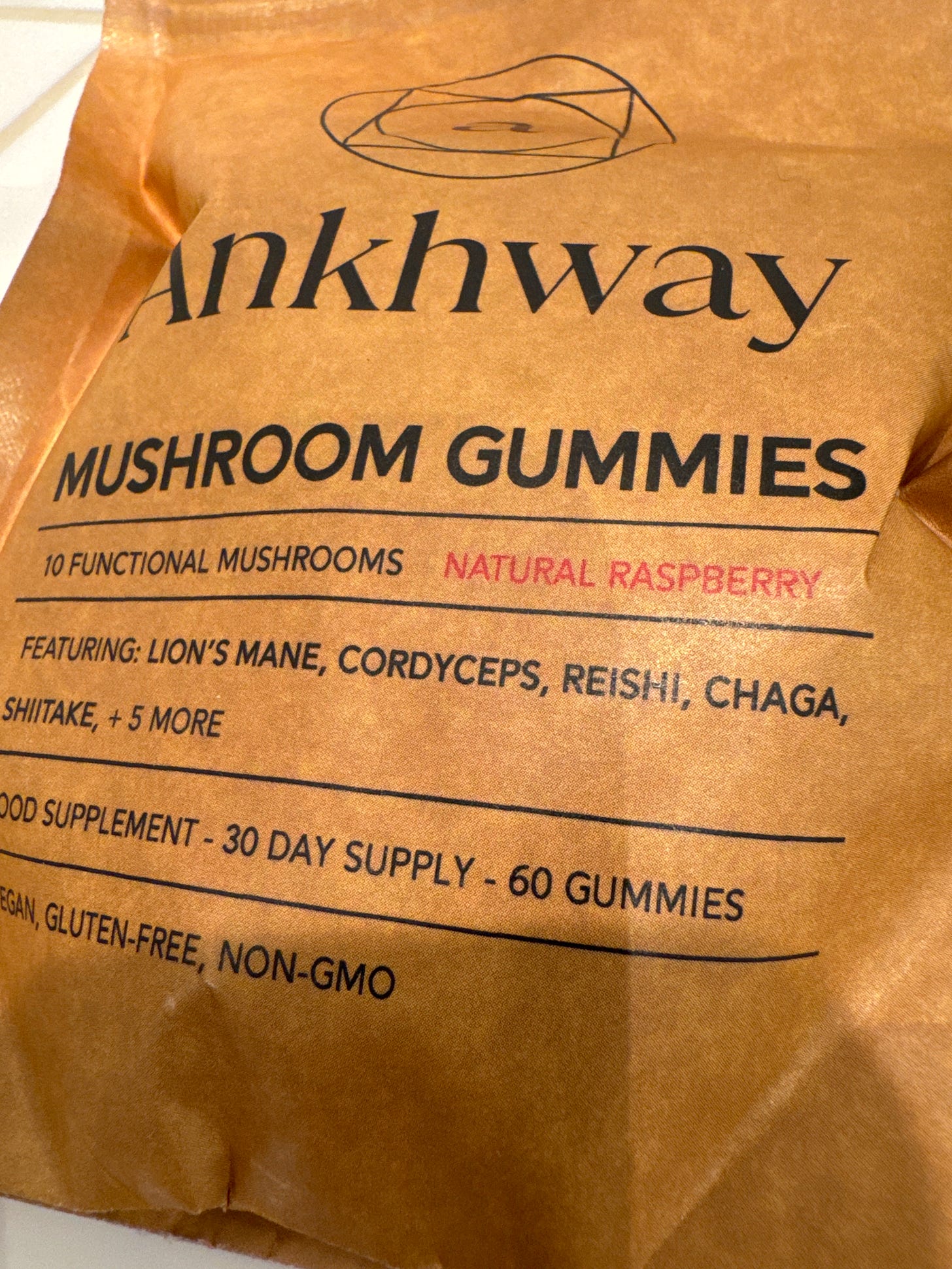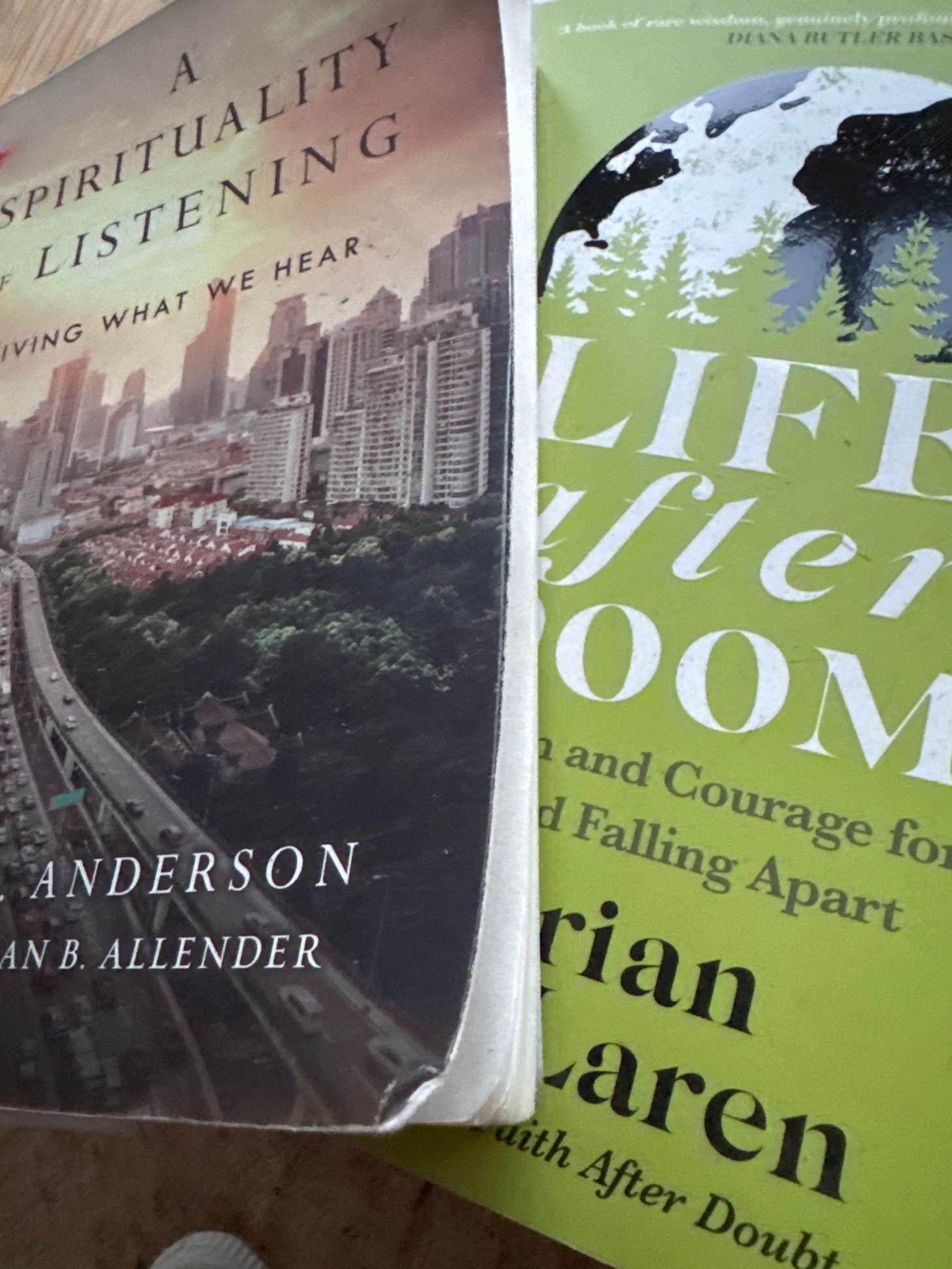In memory
of memory
‘It is also fascinating that there are multiple types of memory, beyond just short-term and long-term. In the science of seeking to understand the brain and memory, researchers seem to speak of at least five forms of memory:
declarative, episodic, procedural, spatial and semantic.’
(A Spirituality of Listening - Living What We Hear by Keith R Anderson)
I felt it might be interesting to put down some thoughts and feelings on memory as mine is changing. The excerpt above is from a book I’m currently reading. I’ve read it
before, the pages are dog eared and the whole book looks well used, but in putting Pilgrims Progress back on the shelf on Wednesday, this book called out to me. It had a couple of page markers and I opened at the spot, I started reading there and then in the shepherd’s hut and felt a powerful pull to carry on with it. The book came back to the cottage with me as the content felt so very relevant to my spiritual life, to my ordinary, daily life…. to everything.
We’re a frightened society these days. There is much to be scared about. I’m also reading ‘Life after Doom - wisdom and courage for a world falling apart’ by Brian McLaren. Not an easy read if you’re already on the brink of overwhelm or living in a perpetual state of anxiety. It’s a fascinating and important book though, worth reading, but I digress. The fear I talk of concerns dementia onset or Alzheimer’s. People are terrified of it. I worked for a while in a psycho-geriatric carehome. Which loosely means that all of the elderly residents were afflicted by some form of mental illness. I loved the work. The residents. Their age and broken minds stirred up a new perspective for me. Their vulnerability provoked compassion and a surprising energetic delight in their way of being. Being with them was joyful. Unexpected. I had wanted to be close to death. To physical failing and perhaps discover a way to be comfortable with the potential for my own decline whenever it came knocking. The care work exorcised the fear out. I came away feeling that the families of residents suffered more - they grieved what was gone, lost. The individuals themselves didn’t remember… there was still identity, memory and fun mixed in with the day to day challenge of forgetting. Obviously some of the memories they retained were lodged in times of enormous emotional upheaval, that happens sometimes, but we could reassure, calm and restore
balance to a troubled mind with kindness and gentle steering distraction. Shall we talk swallowing? Forgetting how to swallow is among the most difficult aspects of these diseases, there is
no way to sugarcoat it. I don’t make light of the condition or wish to skate glibly across the pond of despair people experience as the disease progresses. I do want to bring my own experience out into the light and explore what mind
changes can take up residence in an ageing life.
I’m not a singer, but I know a lot of old songs from the 50s and found if I greeted my ladies with a song they knew from a time in their lives when they were happy, the fear of
waking in a room they didn’t recognise - despite having slept in it for several years - was instantly dissipated. They joined in with the singing and we sang through washing and dressing and breakfast till it was time to join their pals in the sitting room for morning coffee. I mourned for them, the loss of being able to make themselves a cup of tea while praying my own gratitude as I made my early morning cuppa each day before my shift. I made endless cups of tea for women who had forgotten they’d just had one…
The acceptance of a person just as they are - a person who has forgotten many or most things. Pouring love into their day, being funny, spoon feeding without patronising. These things make this unusual life, ordinary and acceptable. Don’t be afraid of it.
So to memory. Mine is definitely changing. I notice when I set off on a journey now that I have to pause and think about where I’m going, my route, whether I turn right or
left out of the drive. This is only for journeys I don’t make regularly. Then as I drive I see the route unfold mile by mile in my mind, with relevant markers along the journey that reassure me I’m going the right way. Procedural memory - of knowing how to drive - is fine. Spatial memory - recognising
landmarks and my local environment - also fine, but I can’t
just get in the car and go. Unless, of course, I’m using the SatNav.
When I read…and I read a lot… there are times when I look at a paragraph I’ve just read and know that not a single part has been stored anywhere in my brain. I re-read to try and assimilate the information. The fluid, agile brain I once had, seems too full and is bone dry. It’s flexibility to stretch and take in more feels desperately in need of lubrication. I’m swallowing mushroom gummies daily in the hope of retrieving some elasticity. Watch this space I only started them at the beginning of the week.
So often I’ll finish a novel and won’t be able to remember the author or even the book title. Even in the reading, it’s as though I’m skim reading without actually taking in the content. I still enjoy the story telling immensely. Reading is still a pleasure, but it’s changed in the last 12 months or so.
My mind holds onto recipes, lines of songs, some places I’ve visited where a mark has been made upon me. These, I find, are all connected with emotion experienced at the time. With a smell or a feeling. Whether it be good or bad. I’d say this is semantic memory, where
I’m making sense of events by interpretation and finding
meaning in my own life unfolding. Storytelling to understand. To some extent I believe these Substack submissions are another way to empty out mind, make sense of life events: past, present, future.
“Stories show us how to bear the unbearable, approach the
unapproachable, conceive the inconceivable. Stories provide
meaning, texture, layers and layers of truth.” Melanie Tem
My calendar is covered in scribbles and crossing out. Double booking, making arrangements and finding I’m already booked on that day, having to apologise, find a new
date. It’s exceptionally annoying and has an odd sense of discourtesy, but it’s simply part of the forgetfulness. Three calendars and a phone diary don’t help, things get written on one but not another. I check everything, but find I've been looking at the wrong week anyway. Confusion. I wonder is it simply information overload? Tom Waits says and I agree ‘we are buried beneath the weight of information, which is being confused with knowledge; quantity is being confused with abundance and wealth with happiness,’
Whole conversations take place with BB or girlfriends where we start to talk of a great tv drama recently watched, but can’t remember the name of it, the channel it was on or the lead actor… we go in circles trying to find a prompt that will work to bring something out of those dark mind recesses and allow us to bring our tale to completion. It’s hilarious, largely because we’re all the same and that feels funny. It is funny…..
Sometimes we just have to leave it and then at 3.00am I’ll wake with Stephen Graham or Michelle Dockery or West Side Story in my head and make a promise to myself to remember in the morning so I can tell someone else. Is it worth jotting in my notebook by the bed…nah. Who really cares.
I can stare at a flower for a long time wrestling with it’s name. I’ve always known the names of flowers and still do but there are those that escape my memory now and no amount of brain searching will bring them back at the time.
A week later it will pop into my head without rhyme or reason. Euphorbia. Mimosa… I congratulate myself. “Aaaa I’ve still got it, it’s still there.” That’s what I hope to convey, these things don’t really
matter, they haven’t disappeared, the mind works in its
own mysterious way and is still a source of great mystery to scientists the world over. Acceptance of the shift and change are what matters. Not trying too hard to make it different. I have a theory that in order to meet with God, we need to unlearn all the clever stuff we’ve acquired through our time here. None of it’s necessary. The holes through which these facts slip are possibly a gateway? Who knows? We ultimately return to a place of not knowing. Like a child, we become again dependent, humbled, blank.
My father had vascular dementia and helping him through the final weeks and days of his life wasn’t easy, but neither was it depressing. He lost his English for a while and reverted to his native tongue, Czech. He imagined himself back in a German camp plotting our escape to Sudetenland. He lost his sight, but on hearing my voice, opened his arms wide for a hug. This had never happened, ever, in my entire life. He never seemed afraid.
The one enduring memory I have of BB’s mum, who had dementia, is this; I visited her right at the end, in the last week of her life. Speech was gone, she drifted in and out, did not eat or drink, but I walked into her room and offered a cordial greeting, she was awake and turned her head towards me. She raised one eyebrow and smiled. It was cheeky, conspiratorial, it was ‘I know you’. She was still there, I knew that, but so often families focus on what’s not visible to them anymore when the real spark of a person’s humanity is still absolutely pristine. Untouched by the bruising of disease. It is the diamond point (Richard Rohr’s term) of their being. So don’t be afraid of forgetting. Of a challenged memory. Of the changes to your functionality, you are still you whether you know it or not. Till the next time
A



